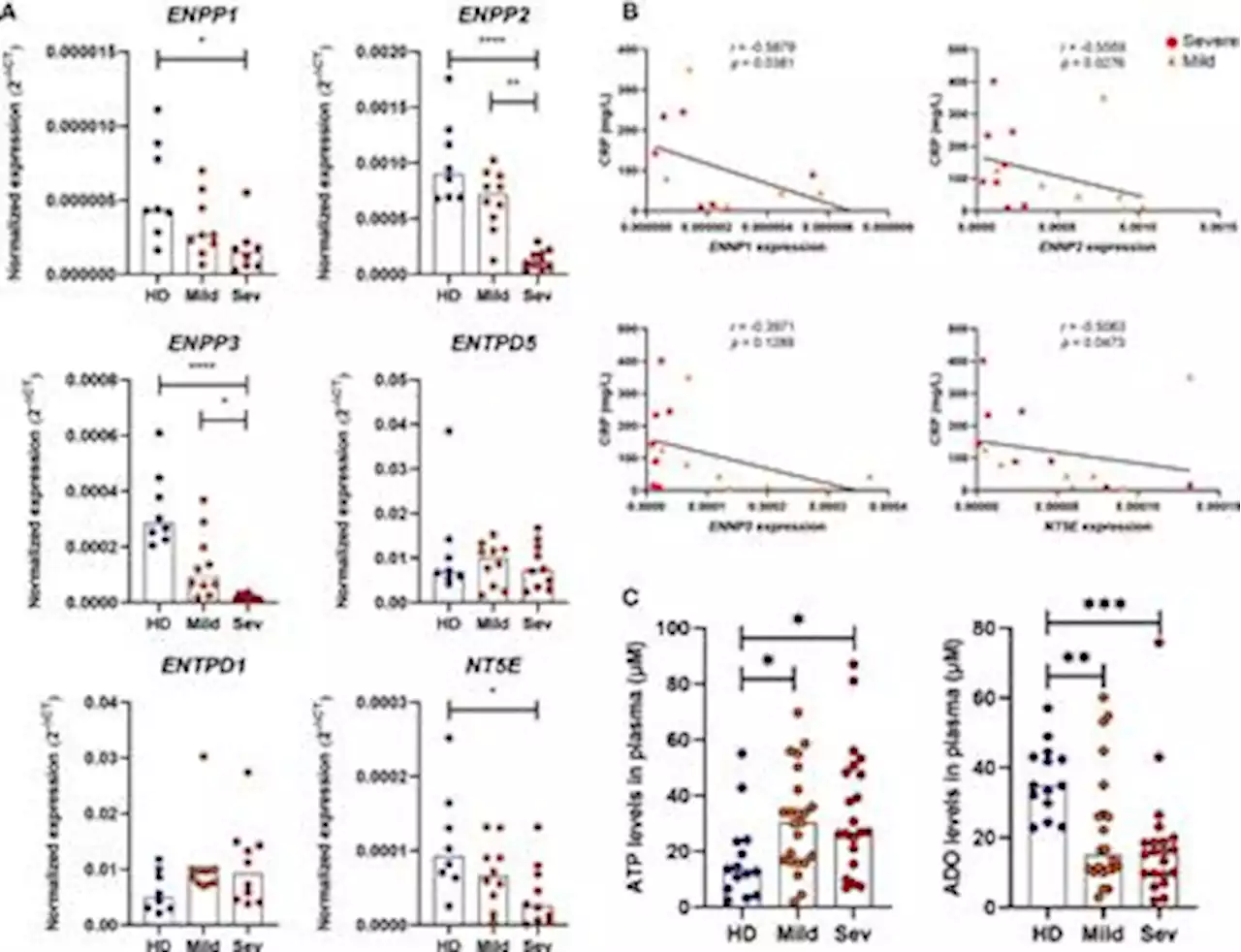In Beijing, business after business is bolted shut. The authorities won't use the word, but this city is essentially in lockdown.
Videos on Chinese social media show workers throwing large objects at authorities and smashing surveillance cameras.
"The World Cup makes the government embarrassed because everybody at home is still watching the TV and there's no masks for the other people," he says.
United Kingdom Latest News, United Kingdom Headlines
Similar News:You can also read news stories similar to this one that we have collected from other news sources.
 The negative impact of COVID-19 on working memory revealed using a rapid online quizAlthough coronavirus disease 2019 (COVID-19) affects the respiratory system, it can also have neurological consequences leading to cognitive deficits such as memory problems. The aim of our study was to assess the impact of COVID-19 on working memory function. We developed and implemented an online anonymous survey with a working memory quiz incorporating aspects of gamification to engage participants. 5428 participants successfully completed the survey and memory quiz between 8th December 2020 and 5th July 2021 (68.6% non-COVID-19 and 31.4% COVID-19). Most participants (93.3%) completed the survey and memory quiz relatively rapidly (mean time of 8.84 minutes). Categorical regression was used to assess the contribution of COVID status, age, time post-COVID (number of months elapsed since having had COVID), symptoms, ongoing symptoms and gender, followed by non-parametric statistics. A principal component analysis explored the relationship between subjective ratings and objective memory scores. The objective memory scores were significantly correlated with participants’ own assessment of their cognitive function. The factors significantly affecting memory scores were COVID status, age, time post-COVID and ongoing symptoms. Our main finding was a significant reduction in memory scores in all COVID groups (self-reported, positive-tested and hospitalized) compared to the non-COVID group. Memory scores for all COVID groups combined were significantly reduced compared to the non-COVID group in every age category 25 years and over, but not for the youngest age category (18–24 years old). We found that memory scores gradually increased over a period of 17 months post-COVID-19. However, those with ongoing COVID-19 symptoms continued to show a reduction in memory scores. Our findings demonstrate that COVID-19 negatively impacts working memory function, but only in adults aged 25 years and over. Moreover, our results suggest that working memory deficits with COVID-19 can recov
The negative impact of COVID-19 on working memory revealed using a rapid online quizAlthough coronavirus disease 2019 (COVID-19) affects the respiratory system, it can also have neurological consequences leading to cognitive deficits such as memory problems. The aim of our study was to assess the impact of COVID-19 on working memory function. We developed and implemented an online anonymous survey with a working memory quiz incorporating aspects of gamification to engage participants. 5428 participants successfully completed the survey and memory quiz between 8th December 2020 and 5th July 2021 (68.6% non-COVID-19 and 31.4% COVID-19). Most participants (93.3%) completed the survey and memory quiz relatively rapidly (mean time of 8.84 minutes). Categorical regression was used to assess the contribution of COVID status, age, time post-COVID (number of months elapsed since having had COVID), symptoms, ongoing symptoms and gender, followed by non-parametric statistics. A principal component analysis explored the relationship between subjective ratings and objective memory scores. The objective memory scores were significantly correlated with participants’ own assessment of their cognitive function. The factors significantly affecting memory scores were COVID status, age, time post-COVID and ongoing symptoms. Our main finding was a significant reduction in memory scores in all COVID groups (self-reported, positive-tested and hospitalized) compared to the non-COVID group. Memory scores for all COVID groups combined were significantly reduced compared to the non-COVID group in every age category 25 years and over, but not for the youngest age category (18–24 years old). We found that memory scores gradually increased over a period of 17 months post-COVID-19. However, those with ongoing COVID-19 symptoms continued to show a reduction in memory scores. Our findings demonstrate that COVID-19 negatively impacts working memory function, but only in adults aged 25 years and over. Moreover, our results suggest that working memory deficits with COVID-19 can recov
Read more »
 China zero COVID: Beijing imposes negative coronavirus test requirement in all public places after cases riseBeijing, along with several other Chinese cities, committed to easing strict lockdown restrictions earlier this month amid growing anger over the government's 'dynamic zero COVID' policy, but infections are still going up.
China zero COVID: Beijing imposes negative coronavirus test requirement in all public places after cases riseBeijing, along with several other Chinese cities, committed to easing strict lockdown restrictions earlier this month amid growing anger over the government's 'dynamic zero COVID' policy, but infections are still going up.
Read more »
 Frontiers | Dysfunctional purinergic signaling correlates with disease severity in COVID-19 patientsEctonucleotidases modulate inflammatory responses by balancing extracellular ATP and adenosine (ADO) and might be involved in COVID-19 immunopathogenesis. Here, we explored the contribution of extracellular nucleotides metabolism to COVID-19 severity in mild and severe cases of the disease. We verified that the gene expression of ectonucleotidases is reduced in the whole blood of patients with COVID-19 and is negatively correlated to CRP plasma levels, an inflammatory marker of disease severity. In line with these findings, COVID-19 patients present higher ATP levels in plasma and reduced levels of ADO when compared to healthy controls. Cell type-specific analysis revealed higher frequencies of CD39+ T cells in severely ill patients, while CD4+ and CD8+ expressing CD73 are reduced in this same group. The frequency of B cells CD39+CD73+ is also decreased during acute COVID-19. Interestingly, B cells from COVID-19 patients showed a reduced capacity to hydrolyze ATP into ADP and ADO. Furthermore, impaired expression of ADO receptors and a compromised activation of its signaling pathway is observed in COVID-19 patients. The presence of ADO in vitro, however, suppressed inflammatory responses triggered in patients’ cells. In summary, our findings support the idea that alterations in the metabolism of extracellular purines contribute to immune dysregulation during COVID-19, possibly favoring disease severity, and suggest that ADO may be a therapeutic approach for the disease.
Frontiers | Dysfunctional purinergic signaling correlates with disease severity in COVID-19 patientsEctonucleotidases modulate inflammatory responses by balancing extracellular ATP and adenosine (ADO) and might be involved in COVID-19 immunopathogenesis. Here, we explored the contribution of extracellular nucleotides metabolism to COVID-19 severity in mild and severe cases of the disease. We verified that the gene expression of ectonucleotidases is reduced in the whole blood of patients with COVID-19 and is negatively correlated to CRP plasma levels, an inflammatory marker of disease severity. In line with these findings, COVID-19 patients present higher ATP levels in plasma and reduced levels of ADO when compared to healthy controls. Cell type-specific analysis revealed higher frequencies of CD39+ T cells in severely ill patients, while CD4+ and CD8+ expressing CD73 are reduced in this same group. The frequency of B cells CD39+CD73+ is also decreased during acute COVID-19. Interestingly, B cells from COVID-19 patients showed a reduced capacity to hydrolyze ATP into ADP and ADO. Furthermore, impaired expression of ADO receptors and a compromised activation of its signaling pathway is observed in COVID-19 patients. The presence of ADO in vitro, however, suppressed inflammatory responses triggered in patients’ cells. In summary, our findings support the idea that alterations in the metabolism of extracellular purines contribute to immune dysregulation during COVID-19, possibly favoring disease severity, and suggest that ADO may be a therapeutic approach for the disease.
Read more »
 Study: Most people with long COVID face stigma and discriminationThe majority of people living with long COVID experience some form of stigma directly related to their condition, according to a new study published in the journal PLOS ONE.
Study: Most people with long COVID face stigma and discriminationThe majority of people living with long COVID experience some form of stigma directly related to their condition, according to a new study published in the journal PLOS ONE.
Read more »
 Black and Hispanic men saw worse COVID-19 outcomes, study showsMore than two years into the pandemic, multiple analyses of federal, state and local data show that people of color were, and continue to be, disproportionately impacted by COVID-19.
Black and Hispanic men saw worse COVID-19 outcomes, study showsMore than two years into the pandemic, multiple analyses of federal, state and local data show that people of color were, and continue to be, disproportionately impacted by COVID-19.
Read more »
